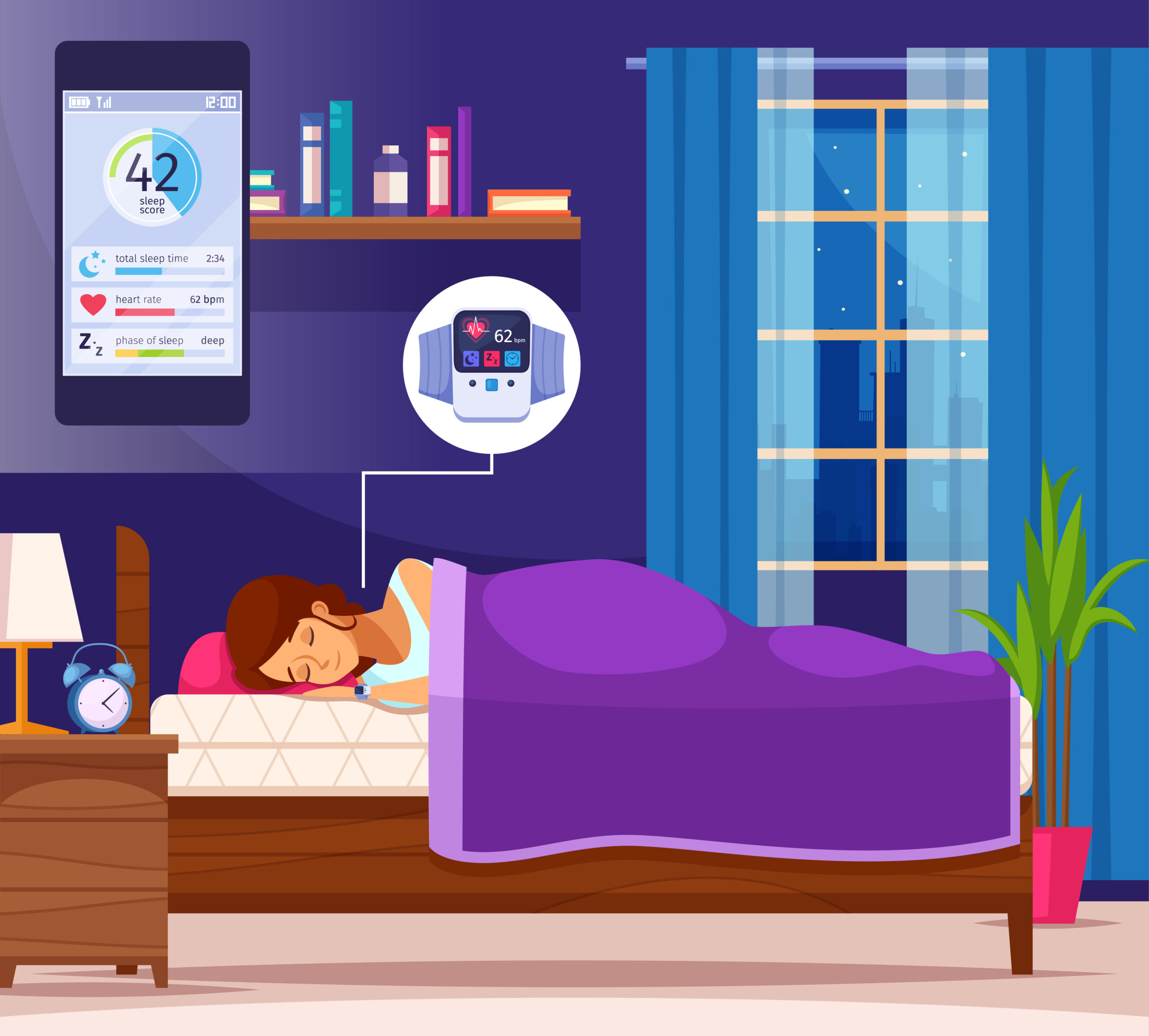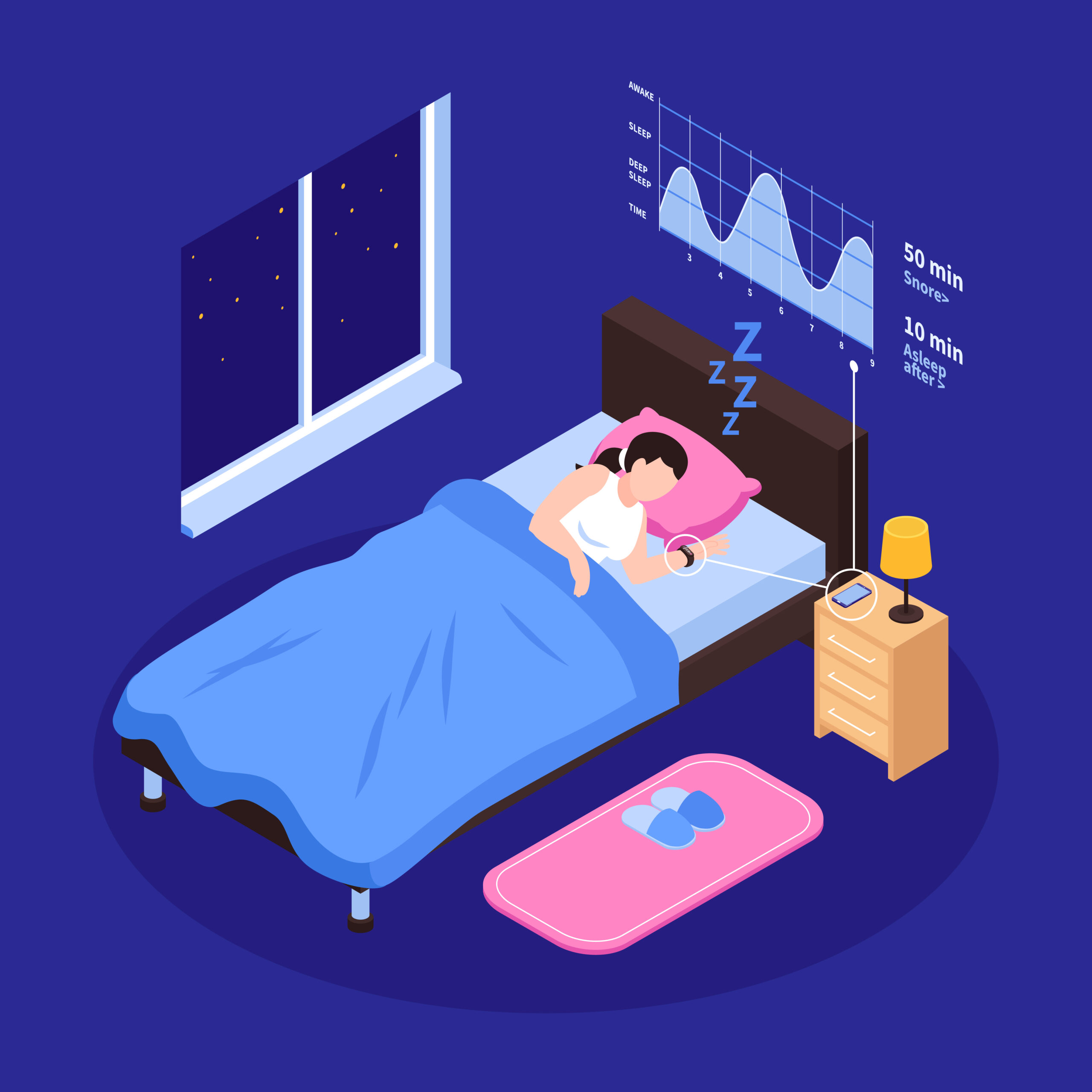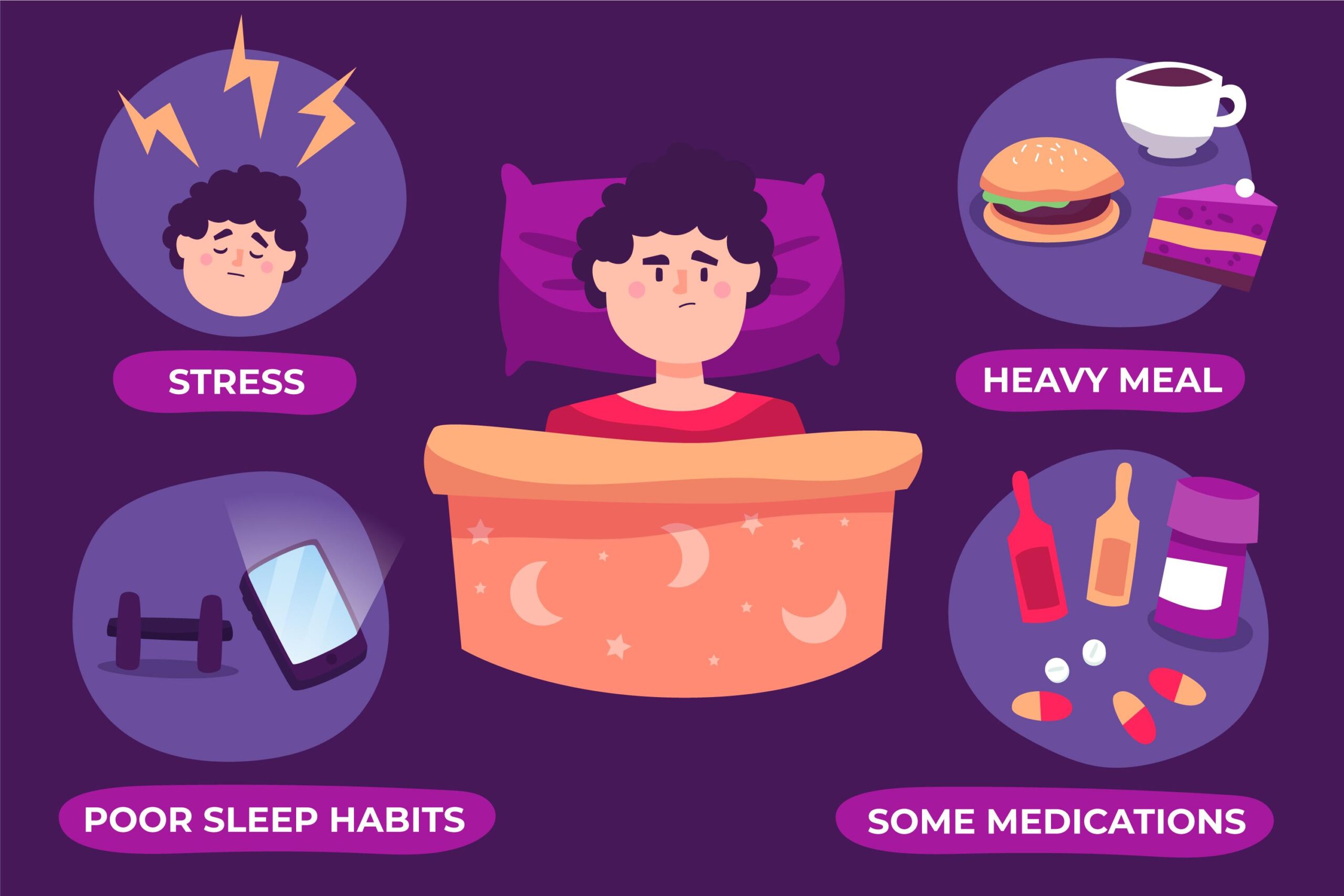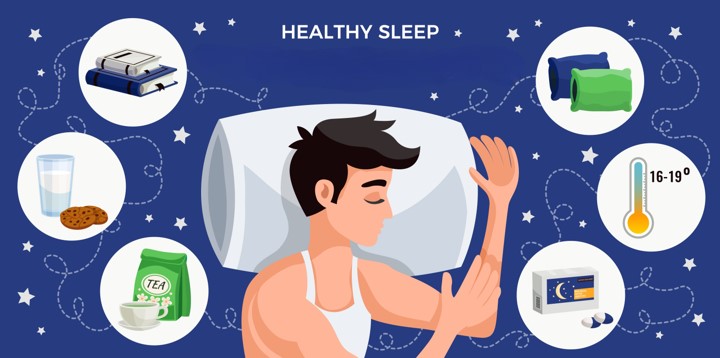Do you want to know the secrets of how to get more REM sleep, then you are at the right place. In the fast-paced world we live in, achieving quality sleep has become a luxury. Among the different stages of sleep, Rapid Eye Movement (REM) sleep is crucial for overall well-being and for Healthy Life.
What Is REM Sleep
Sleep is super important for our bodies and minds. It helps us feel energized and ready to start the day. Within the realm of sleep, there are different stages that we cycle through, each with its own unique characteristics and benefits. One of these stages, known as REM (rapid eye movement) sleep, plays a crucial role in our overall well-being. Understanding the importance of REM sleep can help us unlock the secrets of how to get more REM sleep.
REM sleep is a special kind of sleep where our eyes move quickly and we have really intense dreams. Our brains are super busy during this time, kind of like when we are awake and thinking a lot. Research has shown that REM sleep is vital for cognitive function, memory consolidation, and emotional regulation. It is during this stage that our brains process and make sense of the information and experiences accumulated throughout the day. Lack of REM sleep can lead to difficulties in concentration, memory problems, and mood disturbances. Here you can find some important tips on getting more REM sleep and some remedies on how to get more rem sleep.
REM Sleep Cycle Calculator
To comprehend the significance of how to get more REM sleep, it is essential to understand the different stages of sleep and how they work together. Sleep can be divided into two main categories: non-REM (NREM) sleep and REM sleep. NREM sleep consists of three stages: N1, N2, and N3. N1 is the lightest stage of sleep, while N2 and N3 are deeper stages of sleep, often referred to as slow-wave sleep or deep sleep.
REM sleep, on the other hand, occurs after the NREM sleep stages. It is characterized by increased brain activity and vivid dreaming. During REM sleep, our bodies undergo temporary paralysis, preventing us from physically acting out our dreams. This stage is vital for processing emotions, consolidating memories, and restoring mental and emotional balance. The cycles of NREM and REM sleep repeat throughout the night, with REM sleep becoming longer and more prominent as the night progresses.
The Benefits of Getting More REM Sleep
Getting adequate amounts of REM sleep has numerous benefits for our overall health and well-being. As mentioned earlier, REM sleep plays a crucial role in memory consolidation. It helps solidify and organize memories, making it easier to recall information and experiences. Additionally, REM sleep is essential for learning new skills, as it facilitates the integration of newly acquired knowledge into our existing schema.
REM sleep also plays a vital role in emotional regulation. It is during this stage that our brains process and regulate emotions, helping us maintain emotional balance and resilience. Lack of REM sleep can lead to heightened emotional reactivity, increased stress levels, and a higher risk of developing mood disorders such as depression and anxiety.
Furthermore, REM sleep has been linked to creativity and problem-solving abilities. Research has shown that REM sleep enhances creative thinking and problem-solving skills, allowing us to think outside the box and come up with innovative solutions. It is during this stage that our brains make connections between seemingly unrelated concepts, fostering creativity and innovation. So to gain all these benefits, you need to get knowledge about how to get more REM sleep.
Factors Affecting to Get More REM Sleep
Several factors can affect the quality and duration of REM sleep. Stress and anxiety are common culprits, as they can disrupt our sleep patterns and prevent us from entering REM sleep. Certain medications, such as antidepressants and stimulants, can also interfere with REM sleep. Additionally, alcohol and caffeine consumption close to bedtime can disrupt REM sleep, as they have stimulating effects on the brain. So its essential to find tips for how to get more REM sleep by overcoming all this.
Sleep disorders, such as sleep apnea and insomnia, can also impact REM sleep. Sleep apnea, a condition characterized by pauses in breathing during sleep, can lead to fragmented sleep and reduced REM sleep. Insomnia, on the other hand, can make it difficult to fall asleep or stay asleep, depriving us of the necessary amount of REM sleep. So to overcome these sleep disorders, you need to learn how to get more REM sleep.
How to Increase REM Sleep – Secret Tips for How to Get More REM Sleep
While various factors can affect REM sleep, there are steps we can take to improve its quality and duration. Here are the secret tips you can use for how to get more REM sleep.
1. Creating a sleep-friendly environment is essential for promoting deep and restful sleep. Ensure that your bedroom is cool, dark, and quiet, creating a peaceful atmosphere conducive to sleep.
2. Invest in a comfortable mattress and pillows that support your body and promote proper alignment.
3. Establishing a bedtime routine can signal to your body that it is time to unwind and prepare for sleep.
4. Before going to bed, do something calming like read a book, take a warm bath, meditate, or do deep breathing exercises.
5. Avoid stimulating activities and electronic devices in the hour leading up to bedtime, as the blue light emitted by screens can interfere with the production of melatonin, a hormone that regulates sleep.
6. Regular exercise can also contribute to better REM sleep. Engaging in physical activity during the day helps to reduce stress, increase sleep drive, and regulate circadian rhythms. However, it is important to avoid exercising too close to bedtime, as the increased heart rate and body temperature can make it difficult to fall asleep.
7. Dietary choices can also impact REM sleep. Avoid heavy meals, spicy foods, and excessive fluid intake close to bedtime, as these can disrupt sleep and lead to night-time awakenings. Instead, opt for light, balanced meals that promote relaxation and provide essential nutrients for optimal sleep.
8. Additionally, certain foods and beverages, such as chamomile tea, warm milk, and tart cherries, have natural sleep-inducing properties and can enhance REM sleep.
How to Get More REM Sleep
Achieving optimal REM sleep involves a holistic approach encompassing lifestyle, environment, and mindfulness practices. So how can we find the short answer to the question how to get more REM sleep? Here it is. By prioritizing a consistent sleep schedule, creating an ideal sleep environment, practicing relaxation techniques, maintaining a balanced diet, and incorporating regular exercise, you can significantly enhance your REM sleep and wake up ready to tackle the day.
How to Increase REM Sleep Naturally
Natural Remedies and Supplements
In addition to lifestyle changes, there are natural remedies and supplements that can help enhance REM sleep and you will learn all the aspects of how to get more REM sleep. Herbal supplements such as valerian root, passionflower, and lavender have been used for centuries to promote relaxation and improve sleep quality. You can drink these herbs as tea, take them as a special liquid called tinctures, or eat them as a supplement.
Melatonin, a hormone naturally produced by the body to regulate sleep-wake cycles, can also be taken as a supplement to improve REM sleep. It is particularly helpful for individuals with jet lag or shift work sleep disorder, as it helps reset the internal body clock and promote a regular sleep schedule. Before beginning any new supplement regimen, it’s crucial to speak with a healthcare provider because some supplements may have negative effects or interfere with prescription drugs.
Conclusion: How to Get More REM Sleep
Getting more REM sleep is essential for our overall health and well-being. It plays a crucial role in memory consolidation, emotional regulation, creativity, and problem-solving abilities. Now you learned how to get more REM sleep. By understanding the stages of sleep and the factors that may affect REM sleep, we can implement strategies to enhance its quality and duration.
Creating a sleep-friendly environment, establishing a bedtime routine, engaging in regular exercise, and making wise dietary choices are all steps we can take to improve REM sleep and can solve the question how to get more REM sleep. Additionally, natural remedies and supplements can be used to know better about how to get more REM sleep, but it is important to consult with a healthcare professional before incorporating them into your routine.
Prioritize your sleep and unlock the secrets of how to get more REM sleep. Implement the tips and strategies outlined in this article and experience the transformative power of getting more REM sleep. Your mind and body will appreciate it. Good night and sweet dreams!
FAQs
Q1. What is rem sleep disorder?
Ans: Rapid Eye Movement (REM) Sleep Disorder is a sleep disorder that impacts the REM phase of sleep. REM Sleep Disorder is a condition that disrupts the normally restful REM phase of sleep, causing individuals to act out their dreams physically. It can result in injuries and a lack of quality sleep, impacting daily life.
Q2. How do I get more rem sleep?
Ans: Enhance your REM sleep effortlessly with these simple tips: create a calming sleep environment, stick to a consistent sleep schedule, make mindful eating choices, incorporate stress-busting techniques, and utilize sleep trackers for insights. These easy adjustments ensure a revitalizing and refreshing night’s sleep, leaving you energized for the day ahead.
Q3. How to get better rem sleep?
Ans: Achieving better REM sleep is within your grasp with these simple yet effective strategies. By prioritizing consistency, relaxation, and a conducive sleep environment, you can unlock the full potential of your sleep cycles and wake up feeling refreshed and rejuvenated.
Q4. How to get more rem and deep sleep?
Ans: Stick to a consistent sleep schedule, create an optimal sleep environment with a dark and quiet bedroom, establish calming pre-sleep rituals, and balance physical activity for improved sleep quality.
Q5. How much REM sleep do you need?
Ans: For optimum health and cognitive performance, experts recommend adults aim for 90 to 120 minutes of REM sleep each night. Achieving this golden range can significantly impact memory consolidation, mood regulation, and overall mental sharpness.
Q6. How to increase rem sleep?
Ans: Prioritize consistent sleep patterns, engage in relaxing bedtime rituals, and optimize your sleep environment. For deep sleep, invest in quality sleep hygiene, limit stimulants before bed, and establish a calming wind-down routine.





